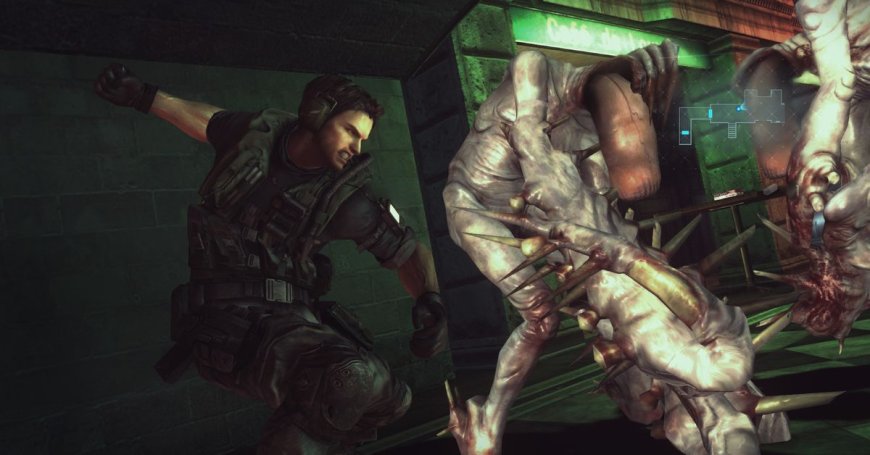Capcom's DRM Practices: A Controversy with Enigma
Capcom, a major player in the gaming industry, has had a turbulent history with Digital Rights Management (DRM) software. While the company has occasionally removed DRM like Denuvo from its games post-launch, it has also been involved in significant controversies due to its DRM practices. The latest incident involves adding new DRM to older titles, sparking debates about its impact on modding and game performance.

Recent Patch Reveals New DRM in Resident Evil Revelations
The discovery of new DRM software in "Resident Evil Revelations" came to light following a recent update to the game. This patch introduced anti-tamper functionality to the game’s executable file, leading to user-reported issues such as crashes, reduced frame rates, and problems with existing mods. In response to these problems, Capcom temporarily withdrew the patch, with plans to address the issues and re-release it.
Also check SAMSUNG LAUNCHES ONE UI 6.0 UPDATE FOR THE GALAXY S22 SERIES
Enigma Protector DRM: Capcom's Latest Implementation
The addition to "Resident Evil Revelations" appears to be part of Capcom's larger strategy to implement Enigma Protector DRM across several of its titles. Since the fall, games like "Mega Man Zero/ZX Legacy Collection" and "Mega Man Battle Network Legacy Collection" have received this DRM, rendering most mods for these games unusable without reverting to earlier versions of the games.
The Shift from Denuvo to Enigma DRM
Capcom’s games have traditionally employed Denuvo DRM, which the company tends to remove after some time. However, in a notable instance with "Ghost Trick: Phantom Detective," Capcom removed Denuvo only to quietly replace it with Enigma DRM. This decision was quickly undermined as workarounds were found within days.
Capcom's Stance on Piracy and Modding
Capcom has maintained an aggressive stance against piracy and modding, equating modding to cheating in some cases. This perspective was highlighted in a presentation by Capcom last October on anti-piracy tools. Yet, the company does acknowledge that many mods are harmless, as evidenced by the impact of the "Resident Evil Revelations" patch on benign mods like ultrawide screen support and Vulkan conversion.
The Questionable Logic Behind DRM on Older Titles
One particularly puzzling aspect of Capcom's DRM policy is the decision to add new DRM to games released years ago, such as "Resident Evil Revelations" from 2013. Given that pirated versions of these older titles have likely been available for years, the introduction of new DRM seems to serve little purpose other than to inconvenience legitimate customers.
User Experience Degradation Due to DRM
Capcom's security measures have previously resulted in a degraded user experience. An example of this was evident at the launch of "Resident Evil Village," where users reported stuttering issues not found in cracked versions of the game. One of Capcom’s most controversial moves was the addition of a rootkit to "Street Fighter V," which significantly increased PCs' vulnerability to malware.
Conclusion: Evaluating Capcom's DRM Strategy
In conclusion, Capcom's approach to DRM, particularly its recent shift to Enigma Protector DRM in older titles, raises questions about the balance between protecting intellectual property and ensuring a quality gaming experience for legitimate customers. The impact on modding communities and game performance, coupled with the questionable effectiveness of DRM in older games, suggests a need for Capcom to reassess its DRM strategies to better align with the interests and experiences of its gaming audience.


































